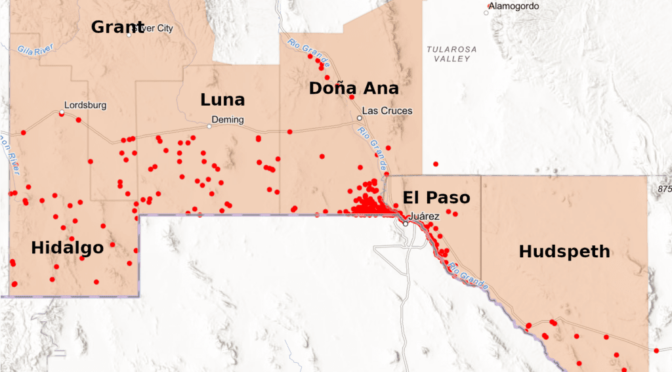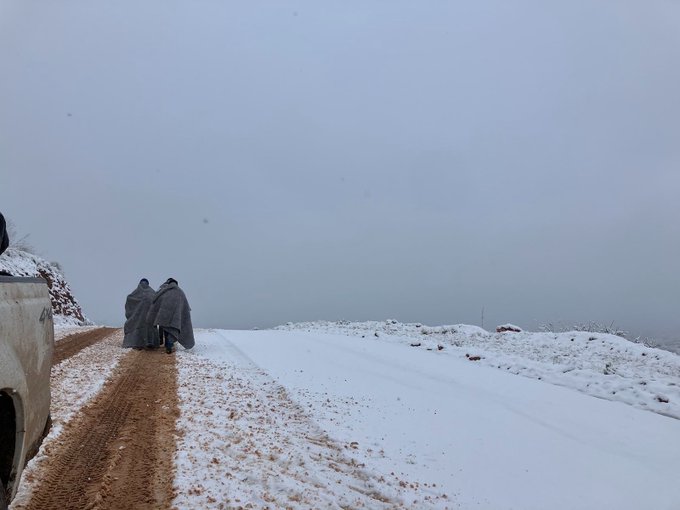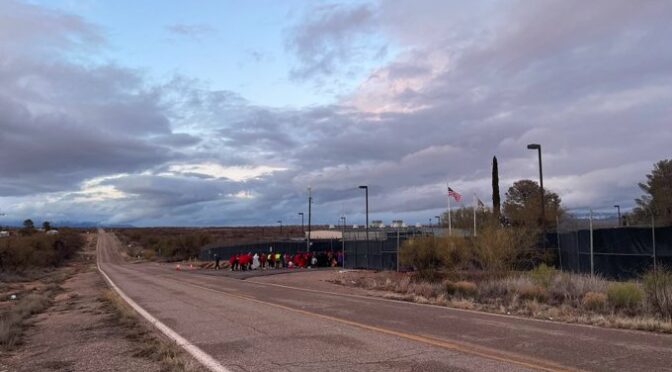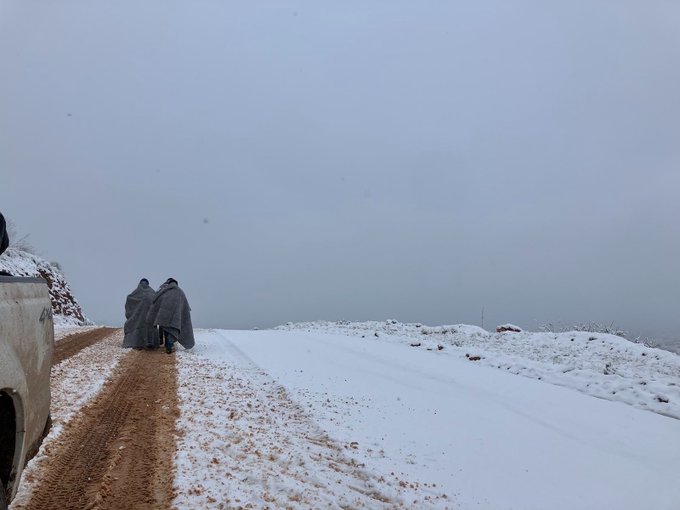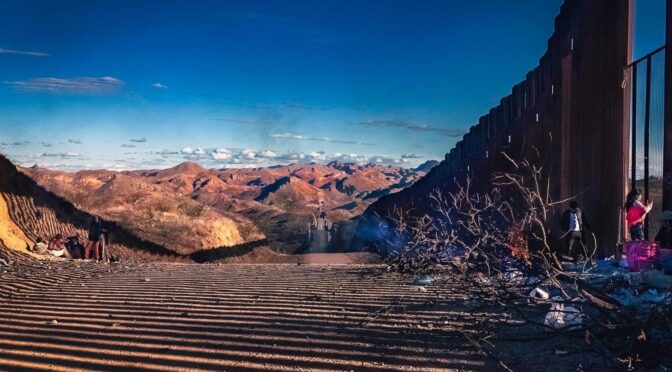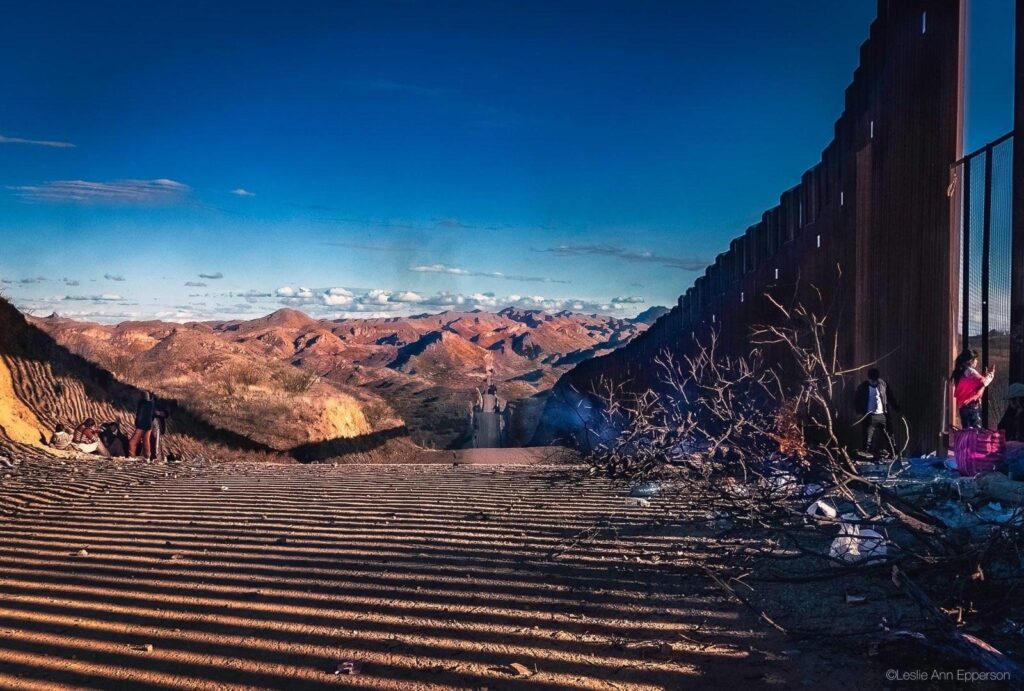Fecha Límite de Solicitud: 15/02/2024
Fecha de Inicio: 01/04/2024
Aplique Aquí: https://form.jotform.com/233065732269156
En No Más Muertes buscamos un Operador de Reportes de Emergencia para unirse al Equipo de la Línea Directa de Personas Extraviadas que trabajará junto con el Operador de la Línea Directa de Crisis, y será responsable de comunicarse con agentes de la Patrulla Fronteriza para solicitar que se inicien búsquedas de personas desaparecidas. En este equipo, colaborará con socios de No Más Muertes y otros grupos comunitarios a ambos lados de la frontera para responder a las peticiones de los familiares que buscan a sus seres queridos desaparecidos y proporcionará asistencia humanitaria, civil y no violenta para la crisis de las personas desaparecidas en las zonas fronterizas.
Acerca de No Más Muertes
Somos una organización humanitaria con base en el sur de Arizona. Nuestra misión es poner fin a la muerte y el sufrimiento migratorio por medio de la iniciativa civil y trabajamos abiertamente como comunidad para defender derechos humanos fundamentales.
Sobre los Proyectos y Eventos del Equipo
Los proyectos surgen según el clima político en la frontera, el Equipo de la Línea Directa trabaja en grupo para dividir las responsabilidades de los proyectos que surjan según la disponibilidad respectiva de recursos.
En caso de que aumente el número de llamadas, los proyectos del equipo pueden detenerse. Eventos fuera del estado están sujetos a la capacidad, habilidad y, disponibilidad de cada individuo y se comunicarán con antelación. Algunas responsabilidades incluyen:
- Mantener un horario flexible con el fin de estar preparado y disponible para participar en proyectos comunitarios y eventos del equipo local a Tucson.
- Acompañar y apoyar a la comunidad a sus citas con la corte de inmigración dependiendo de la capacidad del grupo
Función y Responsabilidades del Puesto
El trabajo se realizará desde nuestra oficina de Tucson y en remoto. Tus funciones incluirán:
- Utilizar la información y las coordenadas transmitidas por el Operador de la Línea Directa para determinar las estaciones de patrulla fronteriza correspondientes y realizar informes de emergencia
- Permanecer tranquilo, sereno, sin distracciones y con pleno control de las capacidades cognitivas manteniendo un rendimiento adecuado en situaciones de estrés
- Hacer llamadas a la Patrulla Fronteriza para casos de emergencia o casos activos, y realizar reportes de emergencia a la Patrulla Fronteriza y pedir que se realicen búsquedas para personas desaparecidas
- Hacer seguimiento y mantener comunicación cada dos horas con Patrulla Fronteriza por medio de teléfono y correo electrónico
- Mantener comunicación con el Operador de la Línea cada dos horas transmitiendo la información recibida de la Patrulla Fronteriza y actualizarla hasta que se cierre el caso
- Recopila y documenta la información adecuada durante todas interacciones y archiva las notas, grabaciones, registros, etc., según sean necesarios
- Mantener una comunicación consistente con el equipo, así como con el Operador de Línea, respondiendo a mensajes por Signal y WhatsApp en una manera rápida y eficaz
- Participar regularmente y de forma activa en las reuniones de grupo proporcionando información sobre proyectos finalizados y en fase de planificación
- Asistir a los cursos de formación ofrecidos por el equipo para promover un mejor rendimiento en el trabajo, o según sea necesario, con el fin de mantenerse informado sobre las operaciones actuales, los proyectos y los cambios en el clima político
- Colaborar con el equipo en diversos proyectos, según se requiera o solicite, participando periódicamente con la comunidad en proyectos humanitarios cuando resulte necesario
REQUISITOS
- Bilingüe en inglés y español
- Residencia local a Tucson
- Habilidad para comunicarse de manera cómoda y efectiva con agentes de la Patrulla Fronteriza
- Capacidad para manejar situaciones de gran estrés y gestionar conversaciones intensas
- Capacidad para mantener la compostura y ejercer moderación cuando surjan interacciones verbalmente provocadoras, hostiles o estresantes
- Aptitud de trabajar en equipo dentro de la Línea Directa de Crisis
- Comunicación respetuosa con los compañeros de trabajo
Cualificaciones Preferidas
- Experiencia usando Signal y Whatsapp
- Competencia básica en computadora
CONDICIONES DEL CONTRATO
- Contrato de 12 meses con opción de renovación anual tras evaluación cualitativa a los tres y seis meses. Incluye un período de formación de dos semanas y un período de observación remunerado de 90 días
- 30 horas semanales
- Horas activas de la Línea Directa de 5am-9:30pm con turnos de 4-5 horas al día. Lunes a Viernes y fines de semana cerrados
- Salario mensual de $20 por hora
- El material de trabajo a proporcionar incluye teléfono, laptop y hotspot
Nuestro Paquete Incluye
- Modelo híbrido con un 50% de trabajo desde casa
- PTO flexible y Vacaciones de Invierno
- Cobertura médica y dental
No Más Muertes valora la diversidad y anima fuertemente a las personas de color, a las personas con discapacidad, a las mujeres y a los solicitantes LGBTQ+ a que presenten su candidatura. Las personas con vínculos personales con la frontera o que se identifican como procedentes de una comunidad afectada son especialmente animados a aplicar. La ciudadanía estadounidense no es un requisito. No Más Muertes es una empresa que ofrece igualdad de oportunidades. ¡Gracias por tu interés en este puesto!
TODO ESTO SE REALIZA EN CONJUNTO CON EL RESTO DE LOS OPERADORES Y VOLUNTARIOS

